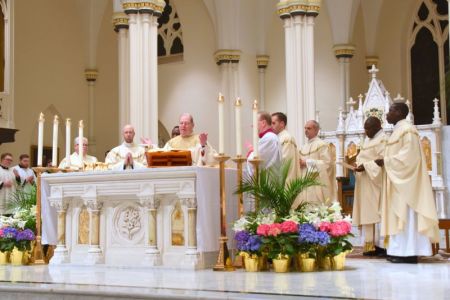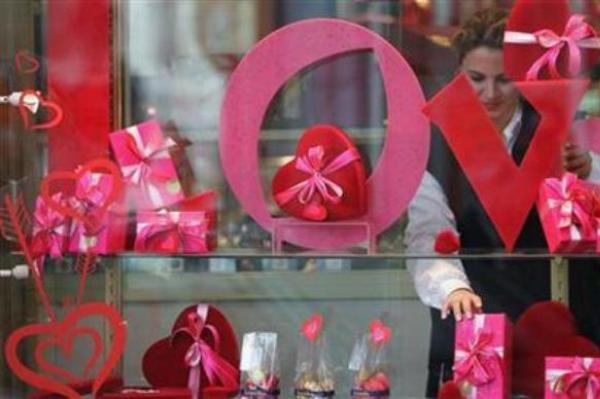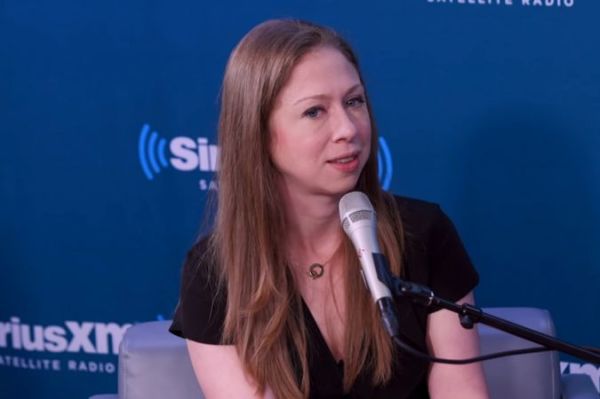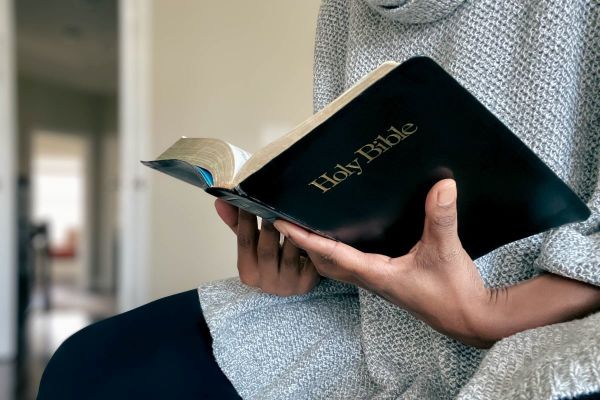Half of Catholics want to attend mass more often than they did before pandemic: poll

A new poll conducted by the Catholic Eternal Word Television Network and RealClear Opinion Research has found that about half of Catholics would like to attend mass more frequently than they have in the past once the coronavirus pandemic is over.
The survey, which was conducted from Aug. 27 to Sept. 1, asked 1,500 self-identified Catholics for their thoughts on various national issues, the coronavirus pandemic and the 2020 presidential election. The sample contains a margin of error of plus or minus 2.81 percentage points.
The study also contains a sample of 1,212 respondents who self-identified as Catholic likely voters. This was the third survey conducted by EWTN and RealClear Opinion since November 2019.
Coronavirus, which nearly nine out of 10 Catholic likely voters found concerning, has caused many to rethink how they feel about attending church and their faith in general.
About 61% of Catholic likely voters said that the pandemic made them feel differently about their faith. Meanwhile, 71% said they were distressed about their inability to attend mass during the coronavirus pandemic.
When asked if they would attend mass more or less frequently after the pandemic restrictions are lifted, 50% of all Catholic respondents (52% of likely Catholic voters) said they would attend more mass frequently while 17% of respondents (13% of Catholic likely voters) said they would go less frequently.
Right now, 58% of Catholic likely voters believe that it is safe to attend mass, compared to 42% who do not.
According to the data, Catholics who attended mass weekly or more before the pandemic were 30 percentage points more likely to believe it is safe to return to mass.
About 91% of Catholic likely voters cited the economy as a cause of concern, followed by health care (89%), coronavirus (88%), national security (85%) and civil unrest (84%).
Criminal justice, taxes, race relations, immigration and foreign policy rounded out the top 10 concerns for Catholics.
Even before the passing of Justice Ruth Bader Ginsburg created a vacancy on the U.S. Supreme Court last week, about 68% of Catholic likely voters saw the Supreme Court as a cause for concern.
Meanwhile, 60% said they were concerned about religious liberty and 59% said they were concerned about abortion.
Respondents were also asked to weigh in on the anti-Catholic violence that has taken place in the United States in recent months. The overwhelming majority of those surveyed said that they were concerned.
Eight out of 10 (83%) of Catholic likely voters were concerned about vandalism and attacks on churches, 74% expressed concern about the attacks on statues of Catholic heroes, the burning of Bibles in Portland, Oregon and calls to tear down statues depicting Jesus as a “white European.”
A majority (51%) said that Catholics should “be doing more to heal the divisions we have in America on race.”
At the same time, an overwhelming majority of likely voters surveyed (81%) trusted their local police department. More than half (57%) of respondents disapproved of the push to defund the police.
Respondents were asked to agree with one of six positions on abortion.
A plurality of those surveyed (30%) believes that “abortion should be allowed only in cases of rape or incest or to save the life of the woman.
Only 15% of respondents believe that “abortion should be available to a woman any time she wants one during her entire pregnancy,” and 15% believe that “abortion should never be permitted under any circumstance.”
About 10% believe that “abortion should be allowed only during the first six months of a pregnancy” and 9% think that “abortion should be allowed only to save the life of the woman.”
The survey asked respondents if a political candidate’s support for abortion made them more likely or less likely to support that candidate.
While 22% of Catholics surveyed said that support for abortion made them more likely to support a candidate, 30% claimed that support for abortion made them less likely to support a candidate.
A plurality of those surveyed (33%) said that a candidate’s position on abortion did not make a significant difference in their support for the candidate and 14% stated that “it depends.”
Less than half (44%) of respondents approved of President Donald Trump’s job performance while 56% disapproved.
Approval of Trump was highest among Catholics who attend church at least weekly (51%) and lowest among those who seldom and never attend mass (39%).
In the 2020 presidential election, 53% of Catholic likely voters planned to vote for Democrat Joe Biden while 41% planned to vote for Trump.
Half (50%) of Catholics supported Hillary Clinton in the 2016 presidential election compared to 45% who supported Trump.
Nationwide, exit polling from the 2016 election demonstrated that 50% of Catholics supported Trump while 46% voted for Clinton.
Mirroring national trends, the survey found that more frequent church attendance correlated with higher support for Trump.
More than half (58%) of Catholic likely voters who attend mass daily support Trump. Support for Trump over Biden stood at 61% among Catholics who attend mass more than once a week.
“The most observant Roman Catholics still tend to support Donald Trump and the Republican Party as do large majorities of white evangelical Protestants – and are among the most highly motivated voters,” concluded Carl Cannon, RealClear Politics’ Washington Bureau chief. “But the question for the GOP is whether there are enough of these voters to make up the difference.”





















